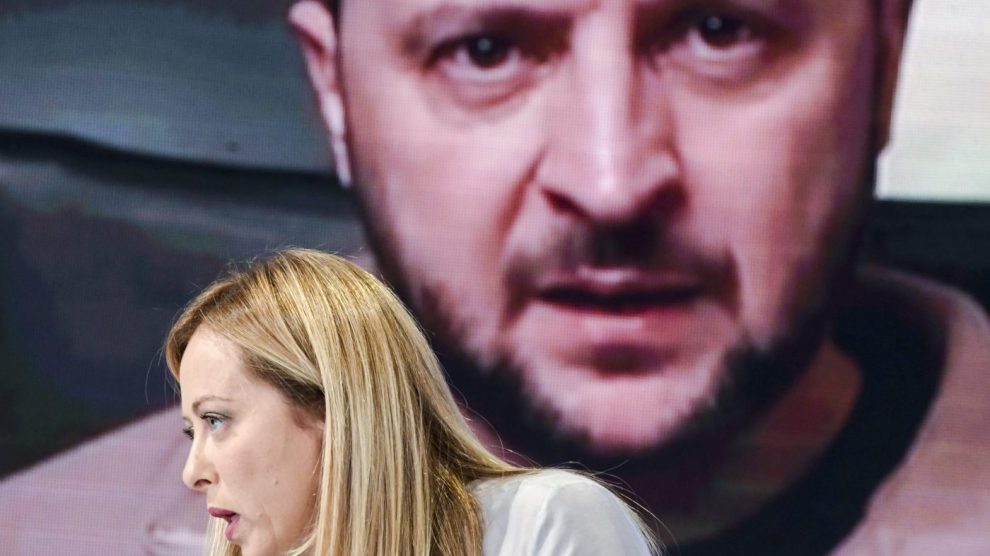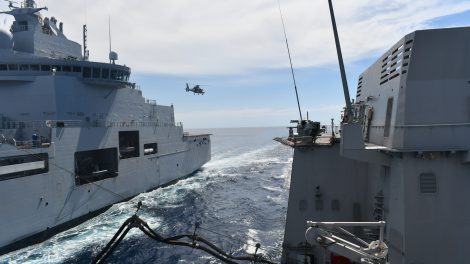The Meloni-Zelensky call. On Tuesday, the Italian Prime Minister had a telephone conversation with the Ukrainian President. It was the second official contact between the two since she became PM; the first was two months ago, just days after she was sworn in.
What Kyiv said. President Zelensky later tweeted he had thanked PM Meloni “for solidarity and comprehensive support for Ukraine” and commended the Italian government’s allocation of an additional €10 million in aid. Ms Meloni informed him that the possibility of shipping air defence systems to protect Ukraine’s skies “is being considered,” added the Ukrainian leader. The two also discussed possible paths to peace.
- Kyiv aims to hold a peace summit by the end of February, preferably at the United Nations, with Secretary-General António Guterres as a possible mediator, around the time of the first anniversary of Russia’s invasion. This much was announced by Ukrainian Foreign Minister Dmytro Kuleba in an interview with the Associated Press.
What Rome said. On her part, PM Meloni “renewed the full support” of the Italian government to Ukraine “in the political, military, economic and humanitarian spheres, in the restoration of energy infrastructure and in the future reconstruction of Ukraine,” according to the official readout. She also reiterated Italy’s “maximum commitment […] to every action” useful to achieve “a just peace” for Ukraine. Finally, she confirmed her intention to travel to Kyiv and invited President Zelensky to Rome.
- Parliament recently voted to allow the government to send arms to Ukraine until the end of 2023. The centre-right majority, the Democratic Party and the so-called Third Pole (Azione–Italia Viva) supported the measure, while the Five Star Movement and the Greens-Left Alliance, long opposed to sending new weapons, voted against it.
Military aid: what’s on the table. The government might consider the contents of the sixth weapons and equipment package as soon as early 2023. It might just respond to Kyiv’s requests, which centre on air defence systems to protect the country’s infrastructure from Russian airborne attacks.
- Rome is reportedly considering anti-drone systems or the Skyguard-Aspide, a short-range surface-to-air missile system against airborne threats carried out at low and very low altitudes. Although it’s not the most recent solution, it boasts high tactical mobility.
- A third hypothesis involves the SAMP/T system, which is more advanced but also rarer; thus, its components are harder to obtain.





